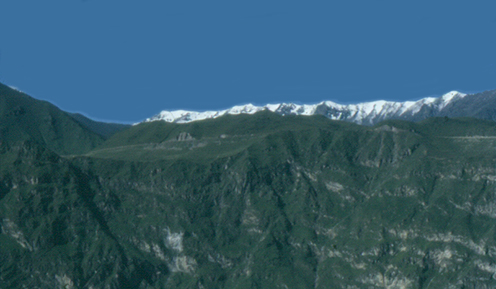FROM ICE TO STONE: Climate Change, Water Scarcity and Conflict Solution in Peruvian Andes
The project, which was funded by the Danish Research Council and lasted from 2010 to 2013, contributed to the scholarly literature on climate change by providing new knowledge of how global warming affects the living conditions and livelihoods of poor people in the Global South.

THE PROJECT IS COMPLETED
Project period: 2010-2013
More specifically, it scrutinized how the villagers and townsmen of Peru's Colca Valley and the shantytown dwellers of the neighboring city of Arequipa created new strategies and engaged in new alliances to adapt to the changing environment and analyzed the role that family households, communal organizations, migrant associations, international tourists, development agencies, small-scale industries, mining companies and state institutions played in the struggle to adjust to the growing water scarcity.
Climate change is generating economic instability, social insecurity and political conflict the world. The current climate change, in particular, has severe consequences for populations inhabiting mountain regions that rely on meltwater from glaciers and permanent ice layers not only for drinking and washing water in the households but also for agricultural irrigation and other purposes. Ironically, the vast majority of these people contribute very little to the global warming. Yet, as marginalized and poor in the Global South they are seldom heard by those who contribute the most, that is the Global North.
Read more about the project below.
Most the growing body of scholarly literature on climate change is conducted in the Global North. This project contributes to this literature by providing new knowledge of how climate change affects poor people in the Global South. It explores the environmental effect of global warming in the Peruvian Andes and examines how social and political institutions respond to the increasing water scarcity and solve the conflicts it causes.
Research questions
Analytically, the project seeks to find answers to three critical questions concerning the transformation the Peruvian Andes is undergoing due to climate change and melting glaciers and permanent ice layers:
a) how do households and communities in rural and urban contexts cope with and create strategies to adapt to the increasing water scarcity?
b) how are the conflicts between these communities and other water users negotiated and solved and what role do government institutions, NGOs and other organizations play in these conflicts?
c) which forms of water management and control systems are used to overcome the increasing water scarcity and to solve the tensions and strives that it generates?
Project leader dr.scient.ant, PhD Karsten Pærregaard
Postdoc Astrid Stensrud
PhD Fellow Astrid O. Andersen
- Waterworlds, climate research centre at The Department of Anthropology, Copenhagen University
- Pontificia Universidad Cathólica del Perú
- PhD Fellow Mattias Borg Rasmussen. Project title: Water in Movement: High Andean Resilience in an Era of Global Climate Change
The project was funded by

The Danish Research Council for Culture and Communication (FKK) under the Independent Research Fund
Project:
From Ice to Stone: Climate Change, Water Scarcity and Conflict Solution in Peruvian Andes
Principal investigator:
Karsten Pærregaard
Project period:
2010-2013
